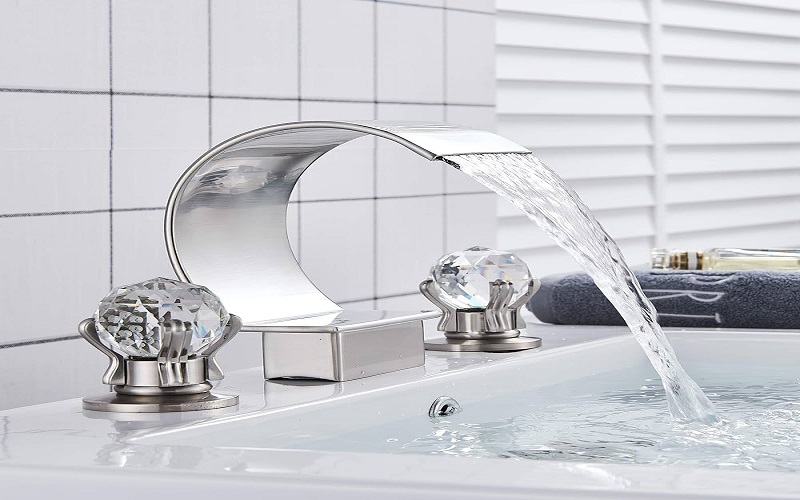
Interior designing in the past 15-20 years has emerged as one of the most sought-after career streams. It is a multifaceted profession that is creating tremendous job opportunities due to a wide range of reasons. There was a time when interior designers used to be labeled as ‘Decorators’, but now they are much more than just decorators. They are believed to have a magic wand using which they can turn any simple space into a spectacular venue. Owing to the scope and bright future possibilities, a diploma in interior designing has become the most preferred professional course these days.
Interior designing has proved to be an excellent career for those who have a flair for creativity and aesthetics. Some of the most popular interior design profiles include:
- Designing of homes or residential spaces
- Industrial spaces interior designing
- Entertain hubs
- Recreation zones, and
- Public interests areas, etc.
Interior designers after completing an interior designing course Delhi work closely with architects right from the planning to execution of the layout of the interiors keeping in view the excellence in functionality and optimum space utilization. Professional interior designers are expected to have unmatched management and communication skills apart from an incredible streak of creativity.
Table of Contents
The Scope of Interior Designing In India
The world has become a global village in the modern era due to the growing reach of the internet wherein the exchange of ideas and all types of information has universalized almost everything including design and architecture. Apart from it, the ever-growing use of social media has also caused a never-before refinement in the taste of the Indian populace for aesthetics in both rural and urban areas. The demand for a better and more sophisticated lifestyle is now connected to the improved architecture as well as better working and living spaces.
With the ever-increasing population in both urban and rural areas and the concept of nuclear families in trend, the per capita land consumption is on the decline. All this has given birth to the need for high creativity in living spaces resulting in the ever-growing demand for professionals with a diploma in interior designing.
Interior designing market to see exponential growth by 2025
With a continuously evolving lifestyle and fast-paced urbanization, the field of interior designing has witnessed a huge expansion of growth and opportunities. With the prices of properties growing almost every other day, people are forced to create smarter homes that are better in aesthetics and compact in size. In such homes, theme-based styles and interiors accomplished by the professionals who have completed an interior designing course Delhi are what allure the homeowners most.
A recently concluded market research has revealed that the interior designing market in India is going to witness exponential growth by the end of the year 2025. This indicates a promising and rewarding future for those who have earned a diploma in interior designing from any reputed institution.
Work areas for interior designers
An interior designer, after earning a diploma in interior designing from an institution of repute, works for clients belonging to different domains to create aesthetically pleasing spaces utilizing unmatched creativity and imagination. The clients they work for range right from homeowners to large corporations. And the spaces that interior designers create also vary, ranging right from simple and sober indoor to outdoors of huge and lavish hotel lobbies and mansions.
Regardless of the size and magnitude of the job to be accomplished, a professional interior designer takes on his or her job to create spaces that are creatively designed, aesthetically appealing, functional, and meet all the specific requirements of the clients.
Some of the major areas interior designers during their interior designing course Delhi can specialize and work in:
Corporate Design
The individuals who specialize in corporate design are responsible for creating a unique combination of highly practical and professional workspaces while incorporating all the elements associated with any company’s brand identity and value. Creating extremely functional and efficient spaces, corporate interior designers work in a comprehensive range of settings that mainly include small offices for start-ups, retail commercial units, and large corporate buildings. With specialization in this subdomain during their diploma in interior designing, they are quite well-versed with all the corporate design affairs.
Healthcare Design
The interior designers who choose to specialize in healthcare design during their diploma in interior designing design and renovate different structures associated with the healthcare industry. Some of the structures include:
- Physician’s offices
- Dental offices
- Hospitals
- Healthcare centers
- Clinics, and
- Residential health care facilities.
Healthcare designers opt for a specialization that is called evidence-based design. This type of design is all about making important decisions that are based on the information obtained through comprehensive reach and project evaluations.
Kitchen and Bath Design
The interior designers who choose kitchen and bath designing as part of specialization during their interior designing course Delhi are called kitchen and bath designers. They are involved in each aspect of their client’s kitchen and bathroom area. With comprehensive knowledge of plumbing, building materials, fixtures, appliances, cabinets, and electrical solutions, kitchen and bath designers create, remodel, and upgrade kitchens and bathrooms of their clients as per their specific requirements.
Sustainable Design
The interior designers who choose to specialize in sustainable design during their interior designing course Delhi are awarded certification in Leadership in Energy and Environmental Design. The interior designers with such expertise create buildings and spaces keeping in view sustainable practices in mind. They focus on utilizing suitable products to ensure:
- Minimum environmental impacts
- Reduced energy consumption
- Better indoor air quality
- Better water and energy efficiency
- Better and optimum use of space available.










Hey There. I found your blog using msn. This is a very well written article. I’ll make sure to bookmark it and come back to read more of your useful info. Thanks for the post. I will certainly comeback.
But wanna tell that this is extremely helpful, Thanks for taking your time to write this.
Yay google is my world beater assisted me to find this great site! .
I have not checked in here for some time as I thought it was getting boring, but the last few posts are great quality so I guess I?¦ll add you back to my daily bloglist. You deserve it my friend 🙂
you are in reality a just right webmaster. The web site loading pace is incredible. It seems that you’re doing any unique trick. In addition, The contents are masterpiece. you have performed a wonderful task on this subject!
I like what you guys are up also. Such clever work and reporting! Keep up the superb works guys I have incorporated you guys to my blogroll. I think it will improve the value of my website 🙂
What Is FitSpresso? The effective weight management formula FitSpresso is designed to inherently support weight loss. It is made using a synergistic blend of ingredients chosen especially for their metabolism-boosting and fat-burning features.
What Is Sugar Defender? Sugar Defender is a meticulously crafted natural health supplement aimed at helping individuals maintain balanced blood sugar levels. Developed by Jeffrey Mitchell, this liquid formula contains 24 scientifically backed ingredients meticulously chosen to target the root causes of blood sugar imbalances.
What Is ZenCortex? ZenCortex is a natural supplement that promotes healthy hearing and mental tranquility. It’s crafted from premium-quality natural ingredients, each selected for its ability to combat oxidative stress and enhance the function of your auditory system and overall well-being.
certainly like your web-site but you have to check the spelling on several of your posts. A number of them are rife with spelling problems and I in finding it very troublesome to tell the truth however I’ll definitely come back again.
Hey there this is somewhat of off topic but I was wanting to know if blogs use WYSIWYG editors or if you have to manually code with HTML. I’m starting a blog soon but have no coding know-how so I wanted to get guidance from someone with experience. Any help would be enormously appreciated!
I don’t commonly comment but I gotta tell appreciate it for the post on this great one : D.
Wow! This can be one particular of the most beneficial blogs We’ve ever arrive across on this subject. Basically Excellent. I am also an expert in this topic therefore I can understand your hard work.
There are some fascinating closing dates in this article but I don’t know if I see all of them heart to heart. There’s some validity but I’ll take hold opinion till I look into it further. Good article , thanks and we would like extra! Added to FeedBurner as properly
Thankyou for this post, I am a big big fan of this site would like to keep updated.
When I initially commented I clicked the “Notify me when new comments are added” checkbox and now each time a comment is added I get several e-mails with the same comment. Is there any way you can remove me from that service? Thanks!
Thank you for your sharing. I am worried that I lack creative ideas. It is your article that makes me full of hope. Thank you. But, I have a question, can you help me?
Hello.This article was really fascinating, particularly since I was looking for thoughts on this subject last couple of days.
Its like you read my mind! You appear to know a lot about this, like you wrote the book in it or something. I think that you could do with some pics to drive the message home a little bit, but other than that, this is great blog. An excellent read. I’ll certainly be back.
you’ve an amazing blog here! would you like to make some invite posts on my weblog?
Your article helped me a lot, is there any more related content? Thanks!